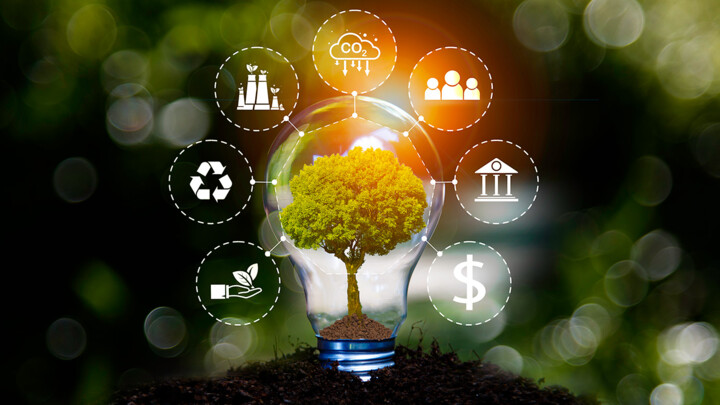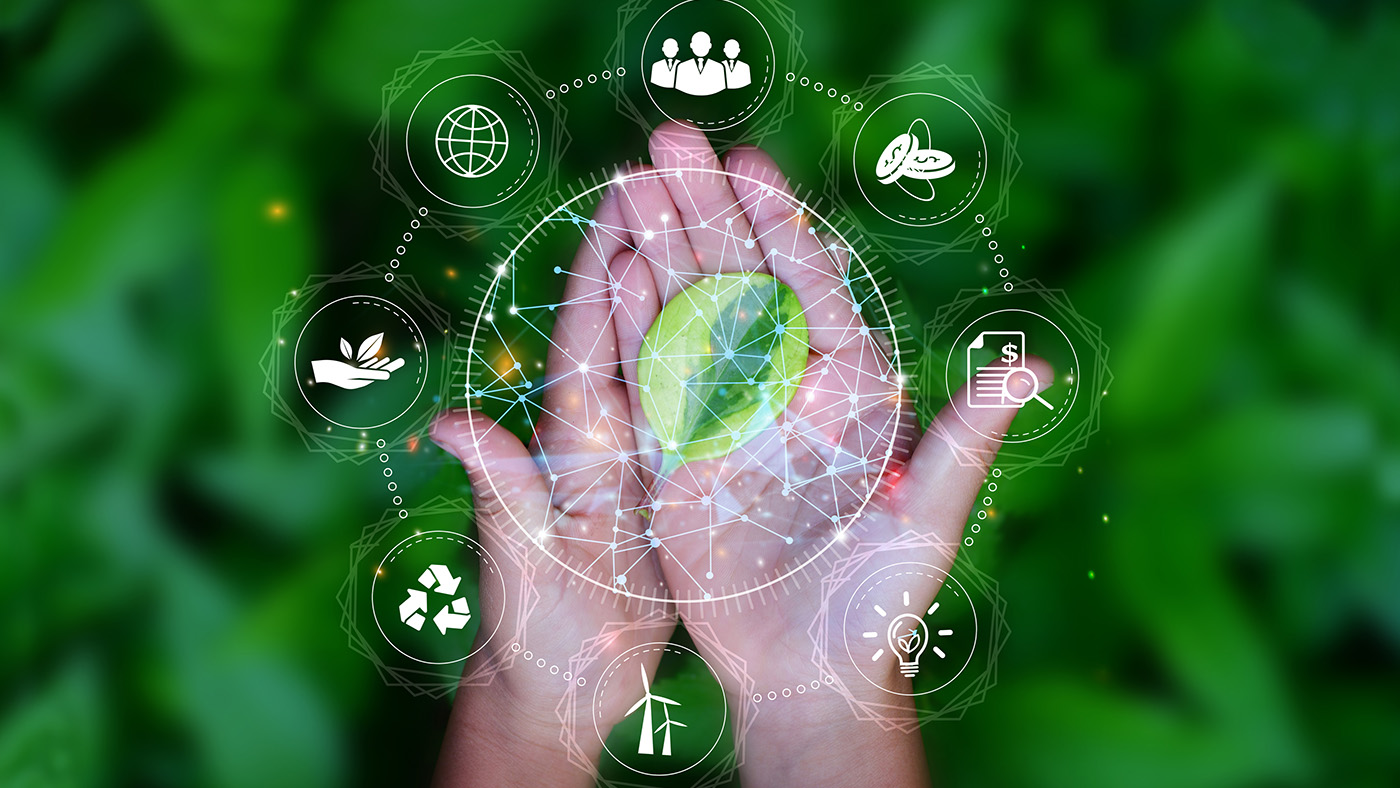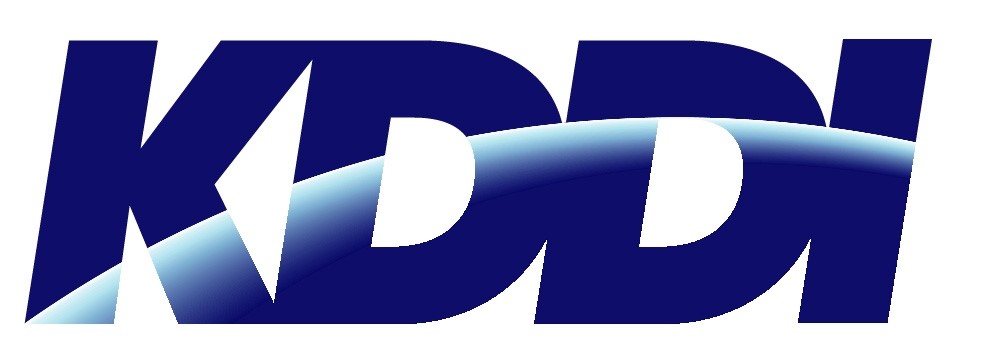Digital Transformation for More Sustainability
Digital tech is the key to significantly reducing Germany’s CO₂ emissions, as illustrated by Oliver Süme, Chair of the eco Board, and Béla Waldhauser, Spokesperson of the Alliance for the Strengthening of Digital Infrastructures in Germany.

©ookawa | istockphoto.com
In order to achieve the German federal government’s climate goals and climate neutrality in line with the Paris Agreement for 2050, digital infrastructures as well as digital services and technologies are an indispensable part of the solution. This is shown by a study recently published by our companies: eco – Association of the Internet Industry, Arthur D. Little, and the eco-founded Alliance for the Strengthening of Digital Infrastructures in Germany.
The study forecasts CO2 emissions for Germany in 2050 and compares them to the potential CO2 savings to be achieved through the consistent introduction and use of digital technologies and services in the Industry, Urban, and Rural sectors. According to the study, digitalization levers in these sectors will together enable CO2 savings of 163 megatons by 2050. This corresponds to around 20 percent of the total emissions forecast for Germany in 2050. For the data storage and transmission sector, an additional savings potential of 104 megatons is forecast, so that a total reduction in CO2 emissions of 30 percent would be possible by 2050.
One of our core recommendations is the following: European policymakers must see digitalization and sustainability as two sides of the same coin and promote the potential of the Internet industry for achieving sustainability goals accordingly, utilizing it in close exchange with the industry. A significantly better CO2 balance is achievable in many sectors thanks to digital technologies and applications – especially through Internet of Things (IoT) application scenarios. It is the responsibility of policymakers to now develop holistic and consistent concepts in close exchange with the industry in order to fully harness this potential for a sustainable digital future.
In particular, a rapid roll-out of connected mobility and a strengthening of Europe as a technology location via innovative technologies and applications – such as AI and the high-performance ecosystem of digital infrastructures – will have a positive impact on sustainability and climate protection goals in the medium term.
Digital technologies are key to CO2 savings
According to the ADL Sustainability Model, the consistent use of digitalization levers can reduce Germany’s projected 2050 CO2 emissions – by around 98 megatons in the Industry sector, 43 megatons in the Urban sector, and 22 megatons in the Rural sector. From smart meters that continuously monitor energy consumption to smart parking or waste management systems, there are countless ways to use technological innovations that have a huge positive impact on the carbon footprint. Digital infrastructures and data centers in particular do consume energy: but in so doing, they contribute significantly more to our positive carbon footprint than their degree of consummation.
With the help of connected mobility solutions alone, the volume of CO2 emissions in Germany could be reduced by 14 megatons by 2030, which is roughly 20 percent of the transport emissions forecast for 2050. Rising emissions in Urban sectors could also be counteracted by holistic smart city concepts: savings of 80,000 tons of CO2 per day are possible here by 2030. For the Rural and Industry sectors, digital transformation also indicates a significant reduction in CO2 emission projections. For example, IoT applications would reduce industrial CO2 emissions by 37 percent by 2050. Rural emissions can be reduced by 39 percent by 2050 through digital innovations.
Ecosystem of digital infrastructures is prerequisite for achieving climate goals
In order to leverage the predicted CO2 savings potential, the roll-out of an efficient ecosystem of digital infrastructures is essential. This starts with a consistent fiber-optic expansion via the nationwide deployment of 5G technologies for mobile Internet utilization, and also focuses on the migration to the cloud of data previously stored in small business servers. High-performance data centers form the backbone of digitalization in Germany and free up technological applications in numerous areas of business and life that have a positive impact on Germany’s and Europe’s carbon footprint.
Already today, the eco-balance of digitalization is proving to be positive. Energy efficiency has always been in the economic interest of data center operators. The CO2 emissions of European data centers have therefore been declining since 2015. Today, they require 12 times less energy per workload than in 2010.
However, the creation of a sustainable digital ecosystem requires the participation of all relevant stakeholders. Policymakers in particular are therefore called upon to establish the necessary framework conditions and competitive factors that enable sustainable transformation while strengthening Germany as a digital location. This requires, in particular, greater availability of renewable energies for the operation of digital infrastructures and corresponding applications on a sufficient scale and at economic conditions.
Our complete study “Digital Transformation for More Sustainability: The Positive Impact of Digital Technologies and Infrastructure on the Carbon Footprint of Industry and Society” is available for download free of charge.
The eco initiative “#JOINTHESOLUTION: We are part of the solution – the Internet industry” illustrates further positive impact potentials of digitalization on carbon footprint, resource efficiency, and sustainability goals.
Oliver Süme is a certified IT lawyer and partner at the European law firm Fieldfisher in Hamburg, Germany. He is an IT and technology law specialist with two decades of experience in the field. Oliver advises national and international clients from various sectors on their path to digitalization. Data protection, IT security, and IT contracts are among his key areas, as are the legal impact of new technologies such as Artificial Intelligence. He has a particular focus on advising international Life Science companies on data protection and GDPR compliance.
Oliver held the presidency of the European ISP association EuroISPA for five years until 2018, and in 2017 took over the role of Chair of the Board at eco – Association of the Internet Industry.
Dr. Béla Waldhauser is Spokesperson for the Alliance for the Strengthening of Digital Infrastructures in Germany, set up in early 2018 under the umbrella of eco to support Germany’s development as a digital location. As a theoretical physicist, Dr. Béla Waldhauser is Chief Executive Officer of Telehouse Deutschland GmbH and KDDI Deutschland GmbH. Previously he was responsible for the German operations of Global Switch, and prior to that TeleCity. Before this, he was Managing Director for Germany and Austria for Teleglobe. For several years, he has been Leader of the eco “Data Center Infrastructure” Competence Group and, since 2011, Member of the Jury for the “German Data Center Prize” in conjunction with the annual “Future Thinking” congress. In 2014, he was invited by the German Federal Ministry of Education and Research, as an expert and as a member of the eco Association, to actively participate in establishing the new strategy platform for “ITC in Horizon 2020.”









